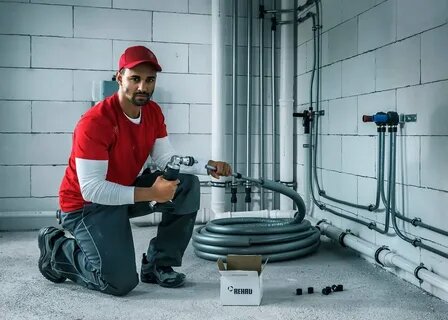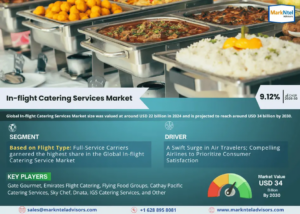How to Avoid Plumbing-Related Business Disruptions

Plumbing-related disruptions can bring business operations to a halt, impacting productivity, employee comfort, and customer satisfaction. In commercial spaces, plumbing issues like leaks, clogs, and system malfunctions can lead to costly repairs and lost revenue. Fortunately, proactive measures and regular maintenance can help businesses avoid unexpected plumbing problems. This article provides a detailed guide on how to prevent plumbing-related business disruptions and highlights ADS Wales as an expert partner in managing commercial plumbing needs efficiently.
1. The Importance of Maintaining Commercial Plumbing Systems
Commercial plumbing systems are essential to daily operations, especially for businesses with high water needs, like restaurants, hotels, and office buildings. While plumbing issues may seem minor, they can have significant implications:
- Employee Productivity: Issues like blocked restrooms or poor water pressure can disrupt employee productivity and comfort.
- Customer Satisfaction: Plumbing issues in customer-facing areas, like leaks or broken fixtures, can harm a business’s reputation.
- Operational Costs: Plumbing issues left unattended often lead to higher water bills, costly repairs, and even structural damage.
Regular maintenance and preventive measures can help businesses avoid these complications and create a more efficient, reliable plumbing system.
2. Conduct Regular Plumbing Inspections
The first step in preventing plumbing disruptions is conducting regular inspections to identify potential problems before they escalate.
a. Schedule Annual or Biannual Inspections
Depending on your facility’s needs, schedule inspections with a commercial plumbing professional at least once or twice a year. During an inspection, a Commercial Plumber will examine pipes, valves, and fixtures for any signs of wear or damage.
b. Monitor High-Risk Areas
Some areas are more prone to plumbing issues than others. High-traffic restrooms, kitchens, and break rooms should be inspected regularly to ensure there are no leaks, clogs, or malfunctions.
c. Invest in Professional Services
Working with a trusted commercial plumbing service like ADS Wales ensures comprehensive inspections using advanced equipment, allowing for early detection of potential issues.
3. Implement Preventive Maintenance Measures
Preventive maintenance helps prolong the lifespan of plumbing systems and reduces the risk of sudden failures.
a. Flush Drains and Pipes Regularly
Clogs often cause plumbing disruptions. Scheduling regular drain and pipe flushing prevents buildup of debris, grease, or mineral deposits that can lead to blockages and overflows.
b. Clean Water Heaters Annually
Sediment buildup in water heaters reduces efficiency and can lead to breakdowns. Annual water heater cleaning helps prevent issues, keeps energy costs down, and ensures consistent hot water supply.
c. Install Water Softeners in Hard Water Areas
Hard water causes mineral deposits in pipes, leading to clogs and potential damage over time. Installing water softeners in areas with hard water can reduce buildup and protect plumbing systems.
d. Inspect Valves and Shut-Off Mechanisms
Ensure that all valves and shut-off mechanisms work correctly. In the event of a plumbing emergency, these components allow you to quickly cut off water flow and minimize damage.
4. Upgrade to High-Quality Plumbing Fixtures
Investing in high-quality fixtures may have a higher upfront cost, but it pays off by reducing the likelihood of repairs and replacements over time.
a. Install Low-Flow Toilets and Faucets
Low-flow fixtures reduce water usage, helping businesses save on water bills while conserving resources. These fixtures are designed for high-traffic commercial spaces and can withstand frequent use.
b. Choose Durable, Commercial-Grade Materials
Opt for commercial-grade faucets, pipes, and fixtures designed for heavy use. They are built to last longer and resist wear and tear better than residential-grade materials, which helps prevent frequent replacements.
c. Use Smart Water Sensors and Leak Detectors
Modern leak detectors alert property managers to leaks, preventing them from causing extensive water damage. Smart water sensors monitor water pressure, temperature, and flow, offering early warnings of potential problems.
5. Train Staff to Spot and Report Plumbing Issues
Employees are often the first to notice plumbing problems in the workplace. Training staff to identify and report issues immediately can help prevent small problems from escalating.
a. Educate Staff on Common Plumbing Problems
Hold brief training sessions to inform staff about common plumbing issues, like identifying leaky faucets, strange odors from drains, and low water pressure. This enables them to recognize problems early.
b. Encourage Prompt Reporting
Encourage employees to report any issues as soon as they arise. This ensures that minor problems, like leaks or slow drains, receive attention before they become disruptive.
c. Create a Simple Reporting Process
Make it easy for employees to report issues with a simple form or designated point of contact. This streamlined process encourages prompt reporting and faster response times.
6. Address Plumbing Emergencies with a Response Plan
A plumbing emergency response plan is essential for minimizing business disruptions when unexpected issues arise.
a. Identify Key Emergency Contacts
Create a list of essential contacts, including your preferred plumbing provider, property manager, and building maintenance staff. Keep this list easily accessible so your team can respond quickly.
b. Locate Shut-Off Valves
Knowing where to find shut-off valves can significantly reduce water damage in an emergency. Ensure that all staff are aware of shut-off valve locations and understand how to operate them.
c. Partner with a Reliable Commercial Plumber
Having a 24/7 plumbing partner like ADS Wales ensures fast and professional assistance in emergencies. A reliable plumber can respond promptly to restore functionality with minimal disruption to business operations.
7. Perform Seasonal Plumbing Preparations
Different seasons come with specific plumbing challenges. Preparing for each season ensures that plumbing systems function optimally throughout the year.
a. Prepare for Cold Weather
In colder months, insulate exposed pipes to prevent freezing and bursting. Drain outdoor water sources and disconnect hoses to avoid damage from frozen water.
b. Inspect for Pipe Leaks in Spring
Winter can put strain on pipes, potentially causing cracks or leaks. Perform a post-winter inspection to identify any leaks or damage and make necessary repairs before they become major issues.
c. Clean Gutters and Drains Before Rainy Seasons
During rainy seasons, ensure gutters and drains are clear of debris to prevent water buildup and reduce the risk of flooding or blockages.
8. Invest in Sustainable Plumbing Solutions
Eco-friendly plumbing solutions not only benefit the environment but also help businesses save on utility costs and reduce the risk of plumbing issues.
a. Install Greywater Systems for Landscaping
If your business has landscaping needs, a greywater system collects and treats wastewater for irrigation purposes, reducing strain on your plumbing system and conserving water.
b. Upgrade to Energy-Efficient Water Heaters
High-efficiency water heaters reduce energy consumption and are less prone to issues than older models. Energy-efficient systems can meet demand with less wear, reducing the likelihood of breakdowns.
c. Harvest Rainwater for Non-Potable Use
Installing a rainwater harvesting system allows businesses to capture and use rainwater for cleaning, flushing toilets, or irrigation, minimizing reliance on the municipal water supply and lowering water bills.
9. Address Persistent Issues with Professional Help
For businesses facing recurrent plumbing issues, it’s essential to work with a skilled commercial plumber to address root causes. Persistent issues may require more comprehensive solutions, such as system upgrades or advanced repairs.
a. Identify Recurring Problems
Keep track of any plumbing issues that occur frequently, such as clogs, leaks, or pressure issues. A skilled plumber can assess these persistent problems to identify underlying causes.
b. Consider System Upgrades
If plumbing issues are common, it may be time for an upgrade. Older pipes, outdated water heaters, and inefficient fixtures are more likely to experience frequent issues. A system upgrade may be more cost-effective in the long run.
c. Use Advanced Plumbing Technologies
Commercial plumbers like ADS Wales use advanced technologies such as camera inspections, hydro jetting, and electronic leak detection to identify and fix complex plumbing issues effectively.
10. Choose a Reliable Commercial Plumbing Partner
Working with a dedicated commercial plumber is one of the best ways to prevent plumbing-related disruptions. A trusted partner offers preventive maintenance, emergency response, and expert guidance tailored to your business’s needs.
a. Experience with Commercial Plumbing Systems
Look for a plumber with extensive experience in commercial environments. Commercial plumbing differs from residential plumbing, requiring specialized knowledge and equipment.
b. Preventive Maintenance Plans
Choose a plumbing service that offers preventive maintenance plans, helping you stay on top of regular inspections and repairs. ADS Wales provides customized maintenance schedules, helping businesses avoid unexpected breakdowns.
c. Emergency Support and Fast Response
Plumbing issues often happen without warning, and having an emergency response team on hand is crucial. ADS Wales offers 24/7 emergency support to ensure that plumbing issues are addressed quickly and professionally.
Conclusion
Maintaining a reliable and efficient plumbing system is essential for preventing business disruptions. By conducting regular inspections, implementing preventive measures, and working with a commercial plumbing expert like ADS Wales, businesses can avoid costly and time-consuming plumbing issues. From training employees to recognizing early warning signs to upgrading outdated systems, every preventive action helps create a seamless and productive workplace environment. Adopting a proactive approach to plumbing maintenance saves money, reduces downtime, and ensures that your business operates smoothly year-round.







